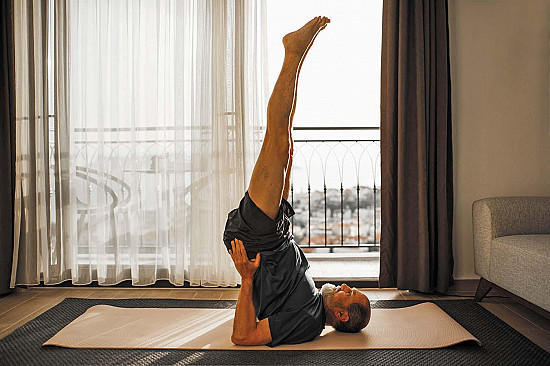Sleep breathing problems may hasten decline in thinking skills
Researchers analyzed the medical histories of about 2,500 people ages 55 to 90 and found that people with sleep breathing problems were diagnosed with mild cognitive impairment (a decline in thinking skills) an average of 10 years earlier than people who didn't have those problems. The encouraging news: people who treated their sleep breathing problems with a continuous positive airway pressure (CPAP) machine were diagnosed with mild cognitive impairment about 10 years later than people whose problems were not treated. The study doesn't prove a cause-and-effect relationship, but it does offer hope. "CPAP improves the quality of sleep in people with sleep-disordered breathing. Healthy sleep is an important time for our brains to accomplish critical 'housekeeping' tasks. One of these tasks is clearing beta-amyloid, one of the main proteins associated with Alzheimer's disease," says Dr. Scott McGinnis, an instructor in neurology at Harvard Medical School.
To continue reading this article, you must log in.
Subscribe to Harvard Health Online Plus (HHO+) to unlock expert-backed health insights, personalized tools, and exclusive resources to feel your best every day.
Here’s what you get with your HHO+ membership:
- Unlimited access to all Harvard Health Online content
- 4 expertly curated newsletters delivered monthly
- Customized website experience aligned to your health goals
- In-depth health guides on topics like sleep, exercise, and more
- Interactive features like videos and quizzes
- Members-only access to exclusive articles and resources
I’d like to subscribe to HHO+ for $4.99/month to access expert-backed content to help make smart, informed decisions about my well-being.
Sign Me UpAlready a member? Login ».
Disclaimer:
As a service to our readers, Harvard Health Publishing provides access to our library of archived content. Please note the date of last review or update on all articles.
No content on this site, regardless of date, should ever be used as a substitute for direct medical advice from your doctor or other qualified clinician.















